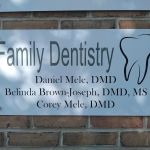Managing Tooth Sensitivity in Older Adults: Personal Insights and Practical Tips
As I’ve gotten older, I’ve started noticing that certain foods and drinks that used to be my favorites now leave me wincing in discomfort. Ice cream, hot coffee, or even a cold breeze—it’s as if my teeth suddenly became more sensitive to temperature changes. I’ve also noticed that I’m not alone in this. Many of my friends and family members, as they age, seem to experience the same issue. Tooth sensitivity in older adults is more common than we think, and it’s something that’s often overlooked until it becomes uncomfortable or even painful.
Tooth sensitivity can be a frustrating and painful experience, especially as we age. As we grow older, our teeth and gums undergo changes, which can lead to heightened sensitivity. But the good news is, managing and alleviating this discomfort is possible with the right approach. In this article, I’ll explore the causes of tooth sensitivity in older adults, share personal experiences, and offer effective solutions that can help ease discomfort and restore confidence in your smile.
1. Understanding Tooth Sensitivity: Why It’s More Common in Older Adults
The first thing I learned when I started experiencing tooth sensitivity was that it’s quite common among older adults. Over time, the enamel on our teeth naturally wears down, and the underlying dentin becomes exposed. Dentin contains tiny tubules that connect to nerve endings, which is why any changes in temperature, pressure, or acidic foods can trigger a sharp pain. This condition, known as dentin hypersensitivity, is often the culprit behind the discomfort I and others experience with sensitive teeth.
But that’s not the only reason older adults experience tooth sensitivity. As we age, our gums may begin to recede, exposing more of the tooth’s surface, including the root. Since the root lacks enamel, it’s much more susceptible to sensitivity. I personally found this out after visiting my dentist for a routine checkup, when my dentist explained that gum recession could be the main reason for my discomfort. Over time, the natural aging process can contribute to this increased sensitivity, but there are also other factors, such as poor oral hygiene or teeth grinding, that can exacerbate the issue.
2. Common Causes of Tooth Sensitivity in Older Adults
As I discussed with my dentist, there are several reasons why older adults might experience tooth sensitivity more frequently. Some of these causes might be preventable, while others are a natural part of the aging process. Here’s what I’ve learned about the most common causes of tooth sensitivity:
- Enamel Wear: Over time, enamel naturally wears down due to aging, brushing too hard, or exposure to acidic foods and beverages. This erosion can expose the sensitive areas of the tooth, causing discomfort.
- Gum Recession: As we age, our gums may recede, exposing the roots of our teeth, which are more sensitive than the crown.
- Teeth Grinding (Bruxism): Many older adults suffer from bruxism, a condition where you grind or clench your teeth, often while sleeping. This can cause enamel damage and tooth sensitivity.
- Dental Procedures: Certain dental treatments, such as teeth whitening or fillings, can lead to temporary tooth sensitivity. In some cases, sensitivity may persist after a procedure.
- Acidic Diet: Consuming acidic foods and beverages like citrus, soda, and wine can erode enamel over time, contributing to sensitivity.
After understanding the various causes, I realized that several of these factors applied to my situation. For example, I’ve always enjoyed drinking coffee and citrus fruits, both of which are acidic. The combination of this and my naturally receding gums led to the discomfort I felt when eating or drinking. Being aware of these causes helped me take steps to prevent further damage.
3. Effective Solutions for Managing Tooth Sensitivity
Once I understood why my teeth were becoming sensitive, I began exploring solutions to alleviate the discomfort. Over time, I discovered several effective ways to manage tooth sensitivity. While these solutions may vary for different people, here are some strategies that worked for me and have been recommended by my dentist:
- Desensitizing Toothpaste: One of the first things I tried was switching to a desensitizing toothpaste. These toothpastes contain compounds that help block the transmission of pain signals from the surface of the tooth to the nerve. After using this toothpaste for a few weeks, I noticed a significant reduction in sensitivity. It’s a simple yet effective way to manage discomfort on a daily basis.
- Fluoride Treatments: My dentist recommended using fluoride treatments to strengthen the enamel on my teeth and reduce sensitivity. Fluoride helps to remineralize weakened enamel, providing a protective barrier. You can either use fluoride toothpaste or get fluoride treatments at the dentist.
- Proper Brushing Techniques: I also learned that brushing too hard can contribute to enamel erosion and gum recession. I switched to a softer toothbrush and made sure to brush gently to avoid further irritation. Additionally, I started using an electric toothbrush with a pressure sensor to ensure I wasn’t brushing too hard.
- Limit Acidic Foods and Drinks: I began cutting back on acidic foods and beverages, such as citrus, soda, and wine, which are notorious for wearing down enamel. I also made sure to drink plenty of water after consuming anything acidic to help neutralize the pH in my mouth.
- Night Guards for Teeth Grinding: After learning that teeth grinding was contributing to my sensitivity, I spoke to my dentist about a night guard. Wearing a night guard while sleeping helped me stop grinding my teeth, reducing both the enamel wear and tooth sensitivity.
While these solutions have been helpful for me, it’s important to consult with a dentist to find the best course of action based on your unique situation. The solutions listed above can significantly improve tooth sensitivity, but in some cases, a dentist may suggest more advanced treatments.
4. When to Seek Professional Dental Help
Despite trying various at-home remedies, there are instances where the sensitivity doesn’t subside. This is when it’s crucial to seek professional help. For example, if your sensitivity becomes severe, persists for weeks, or if you notice cavities or visible cracks in your teeth, it’s time to visit your dentist. They can provide further treatments like fillings, root canals, or even gum grafts if necessary to address more serious issues.
During one of my visits, my dentist discovered that my sensitivity was caused by a small crack in one of my molars, which was allowing cold and hot temperatures to trigger pain. Fortunately, the problem was resolved with a simple filling. If you’ve tried managing your sensitivity at home and it persists, don’t hesitate to visit your dentist for a thorough evaluation and treatment options.
5. Lifestyle Changes to Prevent Tooth Sensitivity
In addition to using the right dental products and treatments, I found that making a few lifestyle changes helped prevent further tooth sensitivity. Here are some simple yet effective habits that can go a long way in maintaining your oral health:
- Quit Smoking: Smoking can contribute to gum recession and other dental issues that increase sensitivity. I found that quitting smoking not only improved my overall health but also helped reduce sensitivity in my teeth.
- Eat Balanced Meals: Eating a balanced diet rich in calcium and vitamin D can help strengthen your teeth and gums, reducing the risk of sensitivity. I started incorporating more dairy products, leafy greens, and nuts into my meals to improve my dental health.
- Regular Dental Check-ups: One of the most important things I did to manage my tooth sensitivity was scheduling regular check-ups with my dentist. Routine visits help catch problems early and prevent further damage to the teeth and gums.
By making these lifestyle changes, I’ve been able to manage my tooth sensitivity and maintain a healthier smile. It’s all about taking proactive steps to care for your teeth and gums, especially as you age.







 Matthew J. Walters DDS0.0 (0 review)
Matthew J. Walters DDS0.0 (0 review) Hometown Family Dental4.0 (133 review)
Hometown Family Dental4.0 (133 review) Mele Family Dentistry4.0 (21 review)
Mele Family Dentistry4.0 (21 review) Krouth Dental4.0 (25 review)
Krouth Dental4.0 (25 review) Central Park Dental Aesthetics4.0 (129 review)
Central Park Dental Aesthetics4.0 (129 review) Orangecrest Dental Group4.0 (54 review)
Orangecrest Dental Group4.0 (54 review) The Importance of Oral Health Education During Pregnancy for a Healthy Pregnancy
The Importance of Oral Health Education During Pregnancy for a Healthy Pregnancy Best Tips for Brushing Your Teeth Properly for Healthy Gums: Essential Techniques for Oral Health
Best Tips for Brushing Your Teeth Properly for Healthy Gums: Essential Techniques for Oral Health Why Skipping Dental Checkups Can Lead to Bigger Oral Health Problems
Why Skipping Dental Checkups Can Lead to Bigger Oral Health Problems Advantages of Porcelain Dental Restorations
Advantages of Porcelain Dental Restorations How Can Diabetes Cause Tooth and Gum Problems? Preventing and Managing Oral Health Issues
How Can Diabetes Cause Tooth and Gum Problems? Preventing and Managing Oral Health Issues Healthy Habits for Promoting Good Oral Health and Hygiene: Tips for a Healthy Smile
Healthy Habits for Promoting Good Oral Health and Hygiene: Tips for a Healthy Smile